This article was written by Laura Cipullo, R.D. and provided by our partners at Rodale Wellness.
Did you know that Americans spend $60 billion annually on diets, diet foods, and weight-loss remedies? The diet industry is pervasive, and we're all falling prey to it because it's impossible to avoid the constant drumbeat of "you're fat and you need help" messages. We need an obesity epidemic cleanse.
RELATED: 3 Exercises for Boosting Your Weight Loss Willpower
Let's start by deconstructing the negative thoughts surrounding our food and our bodies. Read through the following nine statements. Have you ever spoken these words? Chances are, they'll sound familiar. Most American women have spoken these phrases or at least heard other women say them. Let's dig a little deeper into those and apply lessons to each that will help you overcome the pervasive negativity surrounding food and weight.
Start
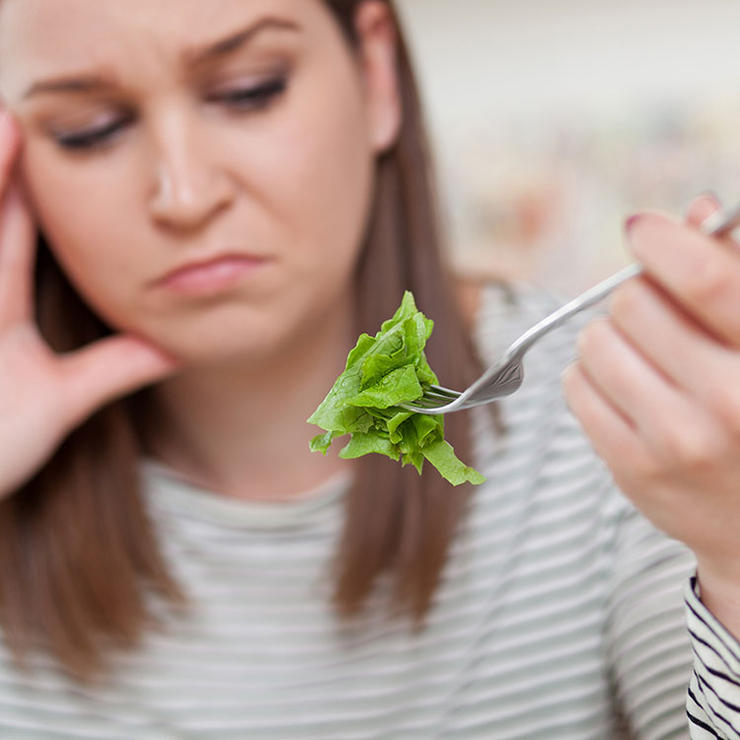 1/9
Photograph by Shutterstock
"I know what to eat, but I just can't do it."
1/9
Photograph by Shutterstock
"I know what to eat, but I just can't do it."
Many people tell me they know more about nutrition than I do or they know what to do, but they just don't do it. Well, bah, humbug! Who really knows how to eat, what to eat, and when to eat? Our parents definitely did not teach us this one. More than half of them don't have a positive relationship with food.
If someone really knew how to eat, what to eat, and when to eat, they would know that eating is more than just fueling your body. It's about enjoyment and fun. It encompasses mind, body, and spirit. Nothing in this world works alone; every little atom affects every other. Remember, we're like onions—we have many layers. And so does our food.
Remember: Our mind, body, and spirit are one. How we feel about our food, as much as the food we eat, affects our "one."
"On a good day I eat good food, such as proteins, fruits, and vegetables, but on a bad day I eat bad food—you know, carbs—bread, pasta, and sweets."
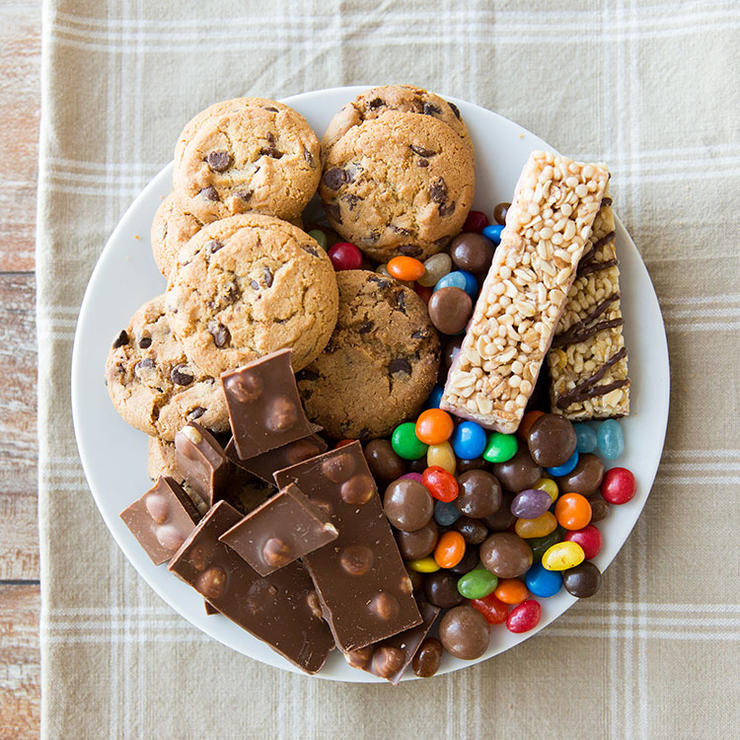 2/9
Photograph by Shutterstock
"On a good day I eat good food, such as proteins, fruits, and vegetables, but on a bad day I eat bad food—you know, carbs—bread, pasta, and sweets."
2/9
Photograph by Shutterstock
"On a good day I eat good food, such as proteins, fruits, and vegetables, but on a bad day I eat bad food—you know, carbs—bread, pasta, and sweets."
When did food become a value judgment? Why does what we eat determine if we are going to have a good day or bad day? Why does getting on the scale determine a good day with good spirits versus a bad day with mood swings? I'm not sure who came up with this notion, but throw it away. It's useless, and it sabotages all efforts to reset your body clock.
When we refer to body clock, please remember: Your body clock is mind, body, and spirit. I'm telling you now: There are no good foods or bad foods. Stop judging them by giving them labels. Just as there are no good kids or bad kids, just kids who behave badly at times, foods should be identified fairly, too. Granted, it's hard to break the labeling mind-set, but you must.
Remember: Stop labeling food with morals and values. Start identifying food by its name. Food is food. An apple is an apple and a cupcake is a cupcake. And a scoop of "death by chocolate" has never murdered anyone, so why call it "bad"?
"That skinny b**** . . . I'm so jealous. She can eat whatever she wants, and I just look at food and gain weight."
 3/9
Photograph by Shutterstock
"That skinny b**** . . . I'm so jealous. She can eat whatever she wants, and I just look at food and gain weight."
3/9
Photograph by Shutterstock
"That skinny b**** . . . I'm so jealous. She can eat whatever she wants, and I just look at food and gain weight."
Here's a classic! Who hasn't said or heard this before? Finger-pointing, blame, jealousy, competition, and worse, hating yourself for being hungry—all negatives. Isn't that a sad way to go through life? But there's another way, which requires a shift in attitude that can be life changing.
Have you heard of the self-care and self-compassion movement? This psychological and behavioral approach is going to be one of the keys to your success.
Remember: Stop stressing and start smiling. Whenever a negative thought enters your mind, find a way to sweep it away by being positive and proactive.
"No matter what I do, the scale never goes down."
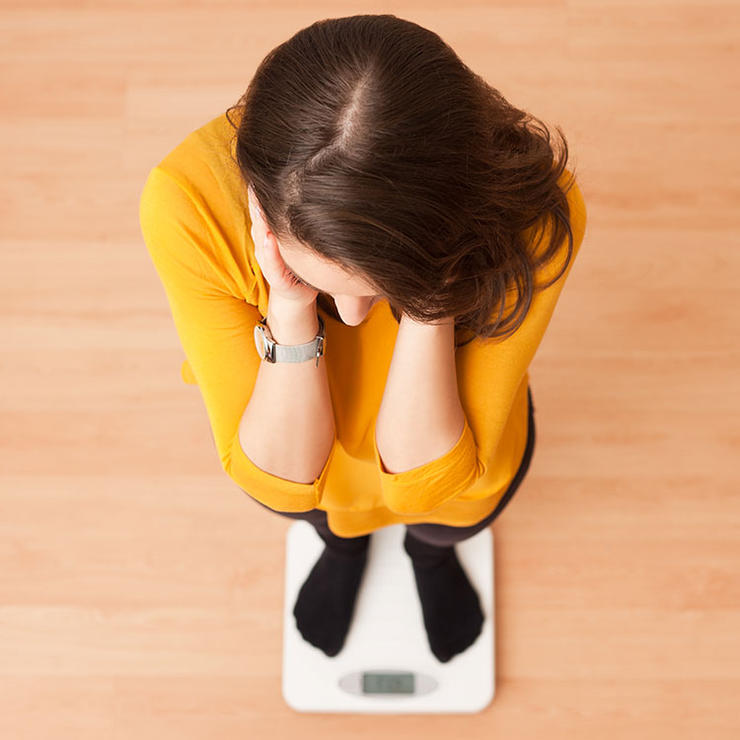 4/9
Photograph by Shutterstock
"No matter what I do, the scale never goes down."
4/9
Photograph by Shutterstock
"No matter what I do, the scale never goes down."
How frustrating is this one? How depressing is it to go to your doctor's office, hear your weight, and be told you're obese according to the body mass index (BMI) chart. "I'd like you to start eating healthy and lose at least 50 pounds," your doctor says. "Have a good day. Next!"
Well, that wasn't helpful. You think, I'm trying, but nothing works. I hate the scale and I hate you, doc. Let's get one thing straight—health is not weight. They are not synonymous. Weight is just one of many measurements, including lab values such as triglycerides, glucose, and C-reactive protein, behaviors such as exercise and sleep cycles, and more that can help assess one's true health status and risk of cardiovascular disease, diabetes, and even eating disorders.
I don't like weight scales. They don't accurately gauge health or percent of body fat. The specific number on the scale reflects just a moment in time. It's the trend of those numbers and how quickly the numbers fluctuate that may provide insight into your health status. Remember that losing too much weight can be just as unhealthy as gaining too much weight too quickly.
Remember: Health and happiness matter more than the number on the scale. Feel confident and celebrate yourself the way you are. Be your own best friend. Forget the scale and focus on eating well, moving often, and being mindful of the many gifts and talents you share with the world, which is your real worth as a human being.
"I lost 40 pounds on one diet, but I gained it all back and more."
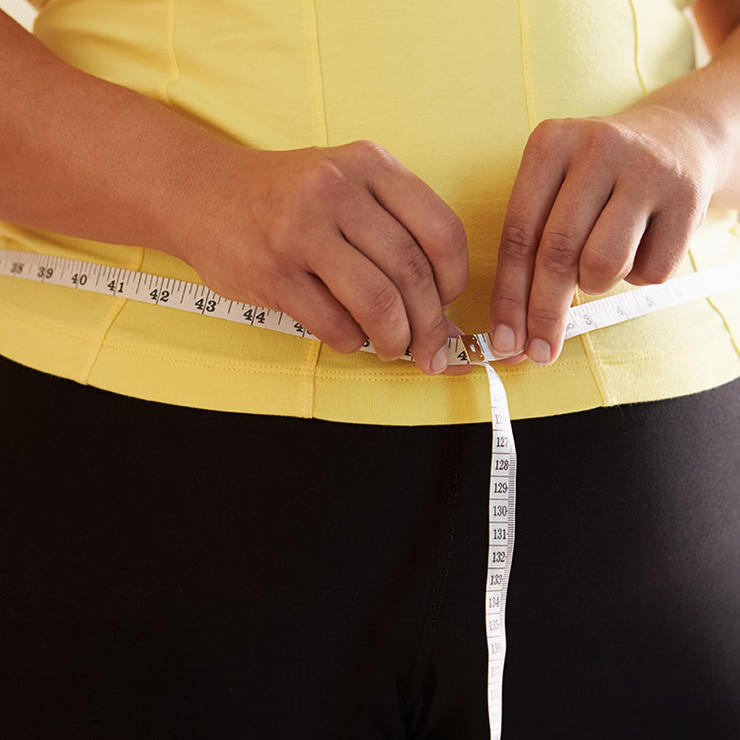 5/9
Photograph by Shutterstock
"I lost 40 pounds on one diet, but I gained it all back and more."
5/9
Photograph by Shutterstock
"I lost 40 pounds on one diet, but I gained it all back and more."
How many diets have you tried? Atkins, Weight Watchers, Nutrisystem, the Cabbage Soup Diet, the Scarsdale Diet, the BluePrint juice cleanse, and now this, the Body Clock Diet. Don't worry. This is not a fad diet. This is the anti-diet.
A fad diet has a beginning and an end point. And once you stop your fad diet, you tend to overeat and gain all the weight back plus more. This happens every time you choose a calorie-restrictive diet, so you end up with a higher set weight than if you had never restricted in the first place. This can lead to an unhealthy pattern called yo-yo dieting.
Remember: Starving yourself ultimately makes you fatter. Stop dieting and establish a lifestyle habit of eating well.
"Tonight is my birthday, and we're going out to eat. I'll start my diet tomorrow."
 6/9
Photograph by Shutterstock
"Tonight is my birthday, and we're going out to eat. I'll start my diet tomorrow."
6/9
Photograph by Shutterstock
"Tonight is my birthday, and we're going out to eat. I'll start my diet tomorrow."
This classic declaration is a sure way to set yourself up for failure. The idea of starting a diet tomorrow rather than choosing to create change right now is the MO of start/stop fad dieting. Self-care is not a game that begins and ends.
Habitual nourishment means establishing a pattern of eating with no right or wrong, winning or losing. Food, exercise, and self-care are choices we make. There is no cheating—only choices with consequences. Take a mindful breath, decide to eat or not to eat, and then move on. The cheating mentality is self-sabotaging. Who are you cheating? Yourself?
Remember: All foods fit, and it's about choosing which foods, how much, and when to eat. This is not a game, so cheating is not in your vocabulary.
"You look so good; what are you eating?"
 7/9
Photograph by Shutterstock
"You look so good; what are you eating?"
7/9
Photograph by Shutterstock
"You look so good; what are you eating?"
Why are we always connecting appearance to some diet or eating strategy? You may have noticed your friend's weight loss, but perhaps she looks so good because she's happy, or is wearing a new outfit, or just read an uplifting text from a good friend. Our culture is obsessed with external judgment, external measurements, and everyone else's business. How about reframing that question to "How are you? You look fabulous!" Or "How are you? You seem so happy!"
By thinking about someone's behavior, mood, and wellness, you'll stop engaging in the social stigma around appearance and weight. This will in turn help you to live in an easier, kinder world that is concerned with people on an emotional level, not just a physical level.
Remember: Focus on the wellness of the whole person. Ask, "How are you?" rather than, "How much weight have you lost or gained?"
"My sister got the good genes, and I got the bad genes."
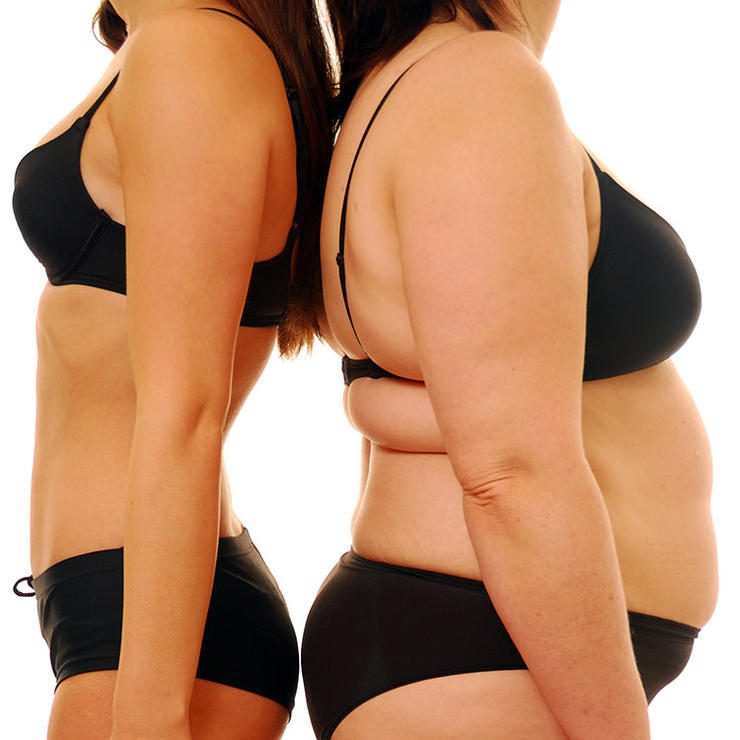 8/9
Photograph by Shutterstock
"My sister got the good genes, and I got the bad genes."
8/9
Photograph by Shutterstock
"My sister got the good genes, and I got the bad genes."
Genetics are definitely part of the picture that affects our health, our biological disposition, and even our temperament. However, we are now learning that our genes are not set in stone. You can turn certain genes on and off through environmental cues and behaviors. The rhythm of your body clock can influence the expression of your genes.
Remember: Work with your body to create wellness. Don't play the genes card; it's a cop-out.
"I could look like her, but I don't want to eat bird food."
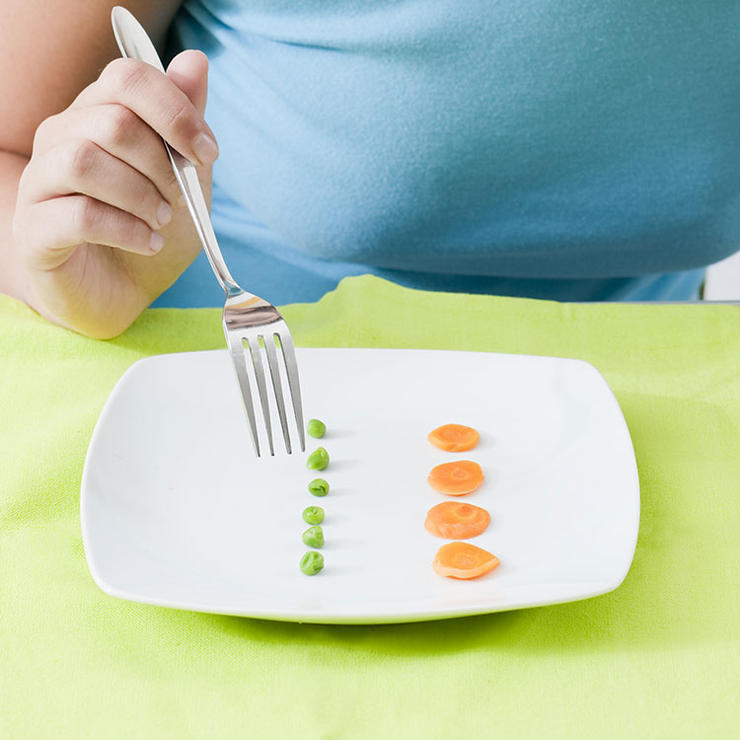 9/9
Photograph by Shutterstock
"I could look like her, but I don't want to eat bird food."
9/9
Photograph by Shutterstock
"I could look like her, but I don't want to eat bird food."
Fruits, vegetables, granola, nuts, whole grains, wheat germ, and even dark chocolate all used to be considered "bird food" or "diet food." We gave them a label, called them things we should be eating more of, and as a result made these foods seem unappealing. But look at what happens when you adopt the attitude that all foods can fit into a healthy diet. Suddenly all foods become appealing. Nothing is sacrificed, so there's no stress.
By being mindful of the nutrients in your meals (protein, fat, and carbohydrates), you can choose foods and portion sizes consistent with your metabolic needs, all the while eating cookies and milk!
Remember: All foods fit. Eat nutrient-dense foods 75 percent of the time and less nutrient-dense foods the other 25 percent of the time.
- Prev:9 Trainers Share the Top Weight-Loss Mistakes People Make in the Gym
- Next:Post-Workout Snacks That Will Help You Lose Weight Faster
 1/9
Photograph by Shutterstock
"I know what to eat, but I just can't do it."
1/9
Photograph by Shutterstock
"I know what to eat, but I just can't do it."
 2/9
Photograph by Shutterstock
"On a good day I eat good food, such as proteins, fruits, and vegetables, but on a bad day I eat bad food—you know, carbs—bread, pasta, and sweets."
2/9
Photograph by Shutterstock
"On a good day I eat good food, such as proteins, fruits, and vegetables, but on a bad day I eat bad food—you know, carbs—bread, pasta, and sweets."
 3/9
Photograph by Shutterstock
"That skinny b**** . . . I'm so jealous. She can eat whatever she wants, and I just look at food and gain weight."
3/9
Photograph by Shutterstock
"That skinny b**** . . . I'm so jealous. She can eat whatever she wants, and I just look at food and gain weight."
 4/9
Photograph by Shutterstock
"No matter what I do, the scale never goes down."
4/9
Photograph by Shutterstock
"No matter what I do, the scale never goes down."
 5/9
Photograph by Shutterstock
"I lost 40 pounds on one diet, but I gained it all back and more."
5/9
Photograph by Shutterstock
"I lost 40 pounds on one diet, but I gained it all back and more."
 6/9
Photograph by Shutterstock
"Tonight is my birthday, and we're going out to eat. I'll start my diet tomorrow."
6/9
Photograph by Shutterstock
"Tonight is my birthday, and we're going out to eat. I'll start my diet tomorrow."
 7/9
Photograph by Shutterstock
"You look so good; what are you eating?"
7/9
Photograph by Shutterstock
"You look so good; what are you eating?"
 8/9
Photograph by Shutterstock
"My sister got the good genes, and I got the bad genes."
8/9
Photograph by Shutterstock
"My sister got the good genes, and I got the bad genes."
 9/9
Photograph by Shutterstock
"I could look like her, but I don't want to eat bird food."
9/9
Photograph by Shutterstock
"I could look like her, but I don't want to eat bird food."




